#volkswagen
Moving Day: Volkswagen Brand Gets a New Boss
Forget all about that Porsche dude. The current CEO of Volkswagen Group’s sporting car brand will not become the new head of the automaker’s namesake brand. Instead, a supervisory board meeting Monday saw Herbert Diess punted, replaced by the brand’s former chief operating officer.
Come July 1st, Ralf Brandstätter will take the helm, tasked with guiding the brand through troubled water and into an electrified future.
Report: Monday Meeting Could See Volkswagen's Diess Replaced
A report last week in a German publication stated that Volkswagen Group was looking for someone new to take charge of its namesake brand. The new blood would come in the form of Porsche CEO Oliver Blume, sources said.
We’re now hearing there’s an “extraordinary” supervisory board meeting being held at VW today, and that the result could be current brand chief Herbert Diess being bounced from his role.
Fix It: Volkswagen Makes Changes to Upper Management
Volkswagen Group is moving Porsche CEO Oliver Blume over to the core brand, necessitating a broader employment shift within the company to ensure other nameplates aren’t left without leadership. German outlet Auto Motor und Sport indicated earlier in the week that a management shakeup was afoot that would see Blume take over the VW brand in order for group head Herbert Diess to focus on managing the bigger picture.
Blume is rumored to have been tapped to help the company address rampant issues with its upcoming electric vehicles. If you’ll recall, VW has struggled with software issues and production holdups for some time. Last we checked, VW’s plan was to launch the ID.3 with less-than-ideal computer code that it intends to fix later.
Sounds like a bad one.
Updated Volkswagen Arteon Teased, Wagon Confirmed
Volkswagen has announced that the 2021 Volkswagen Arteon will make its world debut later this month with some exclusively European company. On June 25th, VW’s four-door fastback will be joined by a “shooting-brake” variant that looks far more interesting. The manufacturer has already explained that the wagon is not intended for North America, so those hoping to own a stretched Golf R will have to warm up a MIG welder and get creative.
The automaker also released a couple of design drawings and some minor details to keep us interested until the big day.
Self-driving's Not the Only Development in the Ford-Volkswagen Relationship
Autonomous vehicle technology might not be a sexy topic for many some, but human-driven vehicles certainly are. One day we’ll gaze at steering wheels in a sterile museum with a mixture of animalistic hunger and soul-crushing depression.
Sure, Ford’s tie-up with Volkswagen includes self-driving technology (sourced from another tie-up, this one with Argo AI), but that’s only part of the agreement. Late last week, the two automakers moved forward on other projects that might be of interest to you.
Volkswagen - and With It, Ford - Secures Self-driving Deal
U.S. self-driving startup Argo AI has completed a deal with Volkswagen AG on self-driving vehicle technology, fulfilling VW’s wishes for a secure and affordable source of gee-whiz gadgetry for future mobility solutions.
The deal, valued at $2.6 billion, will see VW fork over a cool billion while folding its Autonomous Intelligent Driving team into Argo AI’s operations. The automaker’s alliance partner, Ford, pledged $1 billion (over five years) to the startup in 2017, before last year’s tie-up with the German automaker.
Ghosts Of Dieselgate: VW Loses Important Case in Germany
Volkswagen’s emission-related malfeasance was promptly identified and dealt with in the United States. The company was accused of using suspect software to game testing scores on diesel-equipped models in 2015. By October of 2016, VW was on the hook for a $15.6 billion financial penalty, in addition to mandatory fixes or buybacks on affected vehicles.
Things progressed differently on the European front. Germany has subjected the manufacturer to numerous investigations, ultimately deciding to fine the firm $1.18 billion in 2018 and enact widespread recalls. Civil suits have largely focused on VW’s legal representatives denying the software had any ill intent, claiming it was simply code that mistakenly allowed the cars to become non-compliant with regulatory limits. This didn’t fly, however, with a gigantic UK lawsuit finding the automaker guilty of intentionally misleading customers in April.
This week, VW lost another important legal battle in Germany when the Bundesgerichtshof found it guilty of cheating on emissions testing years earlier. The Federal Court of Justice in Karlsruhe decided disenfranchised diesel van owner Herbert Gilbert was entitled to a €28,000 payday, setting a precedent for thousands of other claimants seeking revenge.
Volkswagen Apologizes for Ad, Forced to Talk About Its Dark Past Yet Again
Sometimes a commercial runs afoul of government overseers for reasons only an uptight, power-hungry bureaucrat could understand. Recall the UK giving Ford a hard time for suggesting its Mustang could go fast — perhaps even being capable of exceeding the speed limit. Worse yet, Ford implied that a driver might like it.
Over in Germany, an Instagram ad for the new Mk8 Golf took things in a more unsettling direction. We’re courting controversy ourselves just mentioning the incident, knowing that very concerned parties monitor our material regularly for the purpose of expressing online outrage over imagined word crimes. However, this occurrence is real, and it’s clearly something Volkswagen wishes had never happened.
Mk8 Golf Deliveries Suspended Over Software Gremlins
We don’t know what’s going on with Volkswagen’s software, but if the automaker doesn’t sort it out quickly, it runs the risk of becoming infamous for it. Technical glitches have plagued the launch of Volkswagen Group’s most recent models; so much so, it’s starting to become a trend.
Obviously, there were “software issues” that allowed VW to circumvent emissions testing before the Dieselgate scandal kicked off in 2015, but few people actually believe that was the result of rogue computer code, rather than a corporate attempt to dodge strengthened environmental regulations.
These new issues appear to be generalized glitches stemming from the company’s jump into vehicular connectivity. With the upcoming ID.3 EV, Volkswagen opted to keep its summer 2020 launch and handle existing software glitches (the car had already entered limited production for first-edition models) with a software fix offered at a later date. Yet the more we learn about it, the worse the overall situation appears. Rumors suggest the ID.3 may have a slower-than-anticipated roll-out, with fewer features than originally advertised.
We’re now learning the same might be true for the Mk8 Golf — another new model experiencing technical glitches. This generation saw the model swap to a digitized interface offering enhanced connectivity, in line with the industry’s push to make cars more modern. Sadly, these changes haven’t panned out ideally for either the automaker or its customers. VW has had to stall deliveries of the new Golf to address another round of software issues.
Mk8 Volkswagen GTI Hops a Slow Boat to U.S.
Everyone’s favorite German warm (hottish?) hatch debuted in eight-generation guise early this year, enticing purists with a profile and performance envelope not too dissimilar from what came before. Perfect for VW diehards.
The only problem here is that, despite pent-up anticipation for the Mk8 GTI, America’s favorite Golf variant isn’t about to arrive anytime soon.
QOTD: Do You Care for Over-the-air?
Connectivity is one of those special buzzwords used across most industries, whether it be for a virtual meeting app, a washing machine, or a car. All companies seem to think we need more of it. Today we want to know — are you a fan of cars that come equipped with over-the-air update connectivity?
VW of America: Actually, Maybe This Won't Be the Year We Turn a Profit
Hey, things crop up. Little things, like a global pandemic that ground the economy (and vehicle production, and sales) to a halt for two months, can just appear out of the blue and wreak all sorts of havoc.
Because of just such an occurrence, Volkswagen of America’s long-awaited return to black ink will have to wait.
EV Offensive Looking More and More Like a Decoy Attack
Mercedes-Benz is nixing its all-electric EQ hatchback, according to R&D boss Markus Schäfer. Instead, it’s going to play a GLA-sized EQA crossover as its next hand.
Speaking with Autocar, Schäfer basically said it was a question of market demand. The EQC has already been delayed until at least 2021 for U.S. customers, though we’ve heard talk that its suspension could prove indefinite as the brand reassesses what should — and shouldn’t — be included in its future lineup. “We have to watch customer demand and, at the moment, SUVs and crossovers are the absolute favorites. Those are our first priorities,” Mercedes’ R&D head explained.
It’s only the latest chapter in a complicated story about an industry that’s constantly having to rethink how it handles electric cars.
Not So Fast: Automakers Rethink an Earlier Start
The generally agreed-upon early-May production restarts floated a couple of weeks ago were clearly not set in stone. Not for everyone, anyway. While Fiat Chrysler tossed its tentative May 4th restart to fall in line with the Detroit Three and placate the UAW, other automakers are reaching their own conclusion that earlier might not be better.
Count Toyota and Volkswagen among them.
Volkswagen and Daimler to Merkel: Spiff Our Rides
Amid steep drops in operating profit and a dismal sales outlook, both Volkswagen and Mercedes-Benz parent Daimler are appealing to the state in a bid to generate sales demand.
Both automakers appealed to the German government for assistance on Wednesday, Reuters reports, ahead of a meeting of auto industry leaders. With vehicle production making up a big part of Germany’s GDP, the shutdowns enacted to slow the spread of COVID-19 has left the sector hurting. That pain is expected to last through 2020.



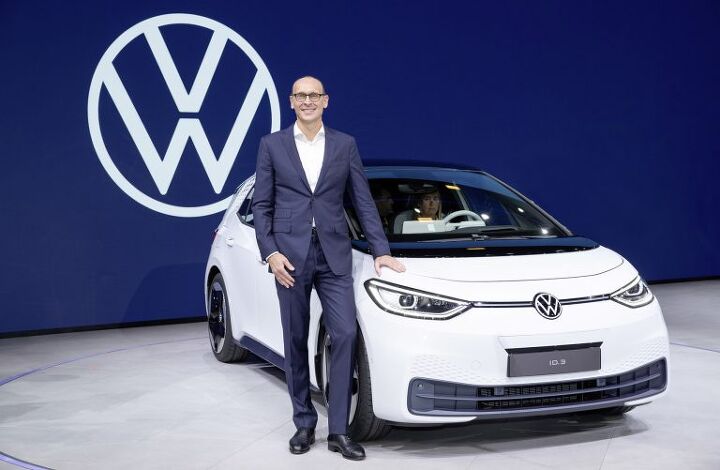
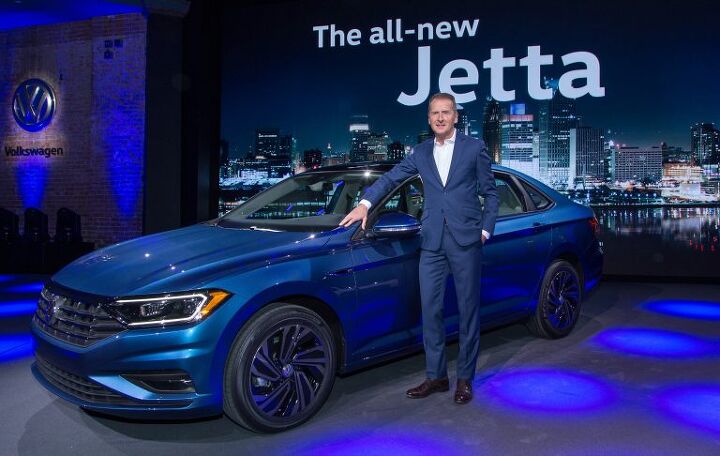

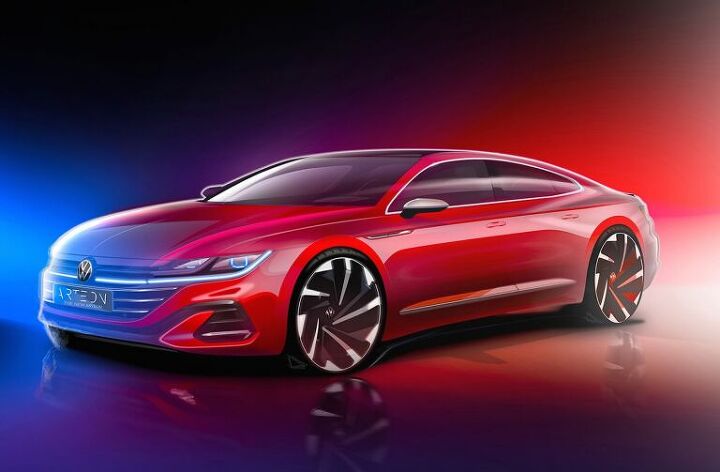
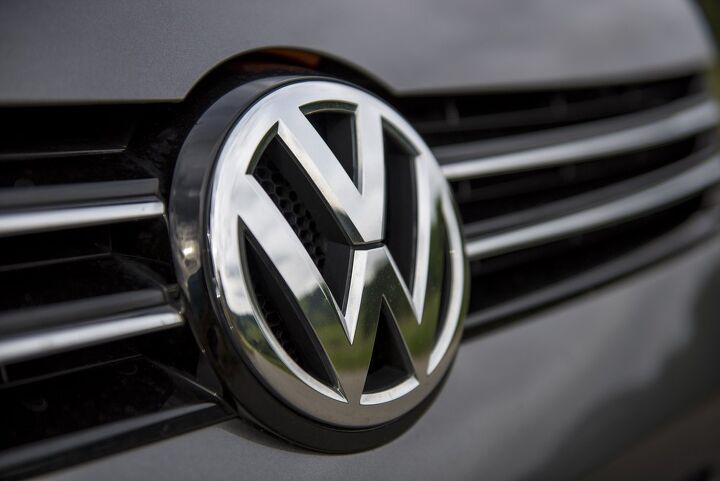
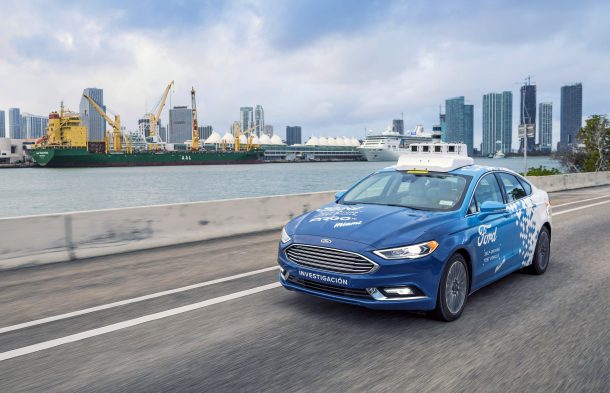
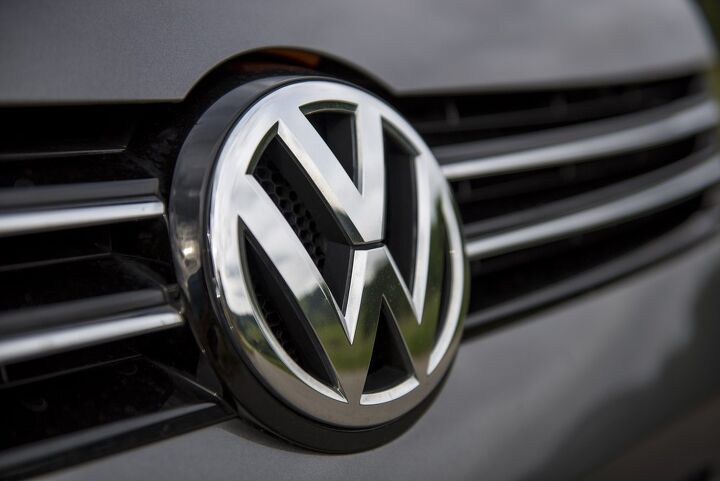


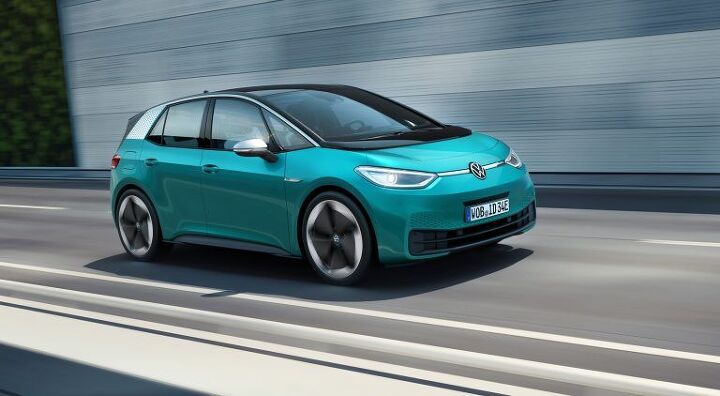
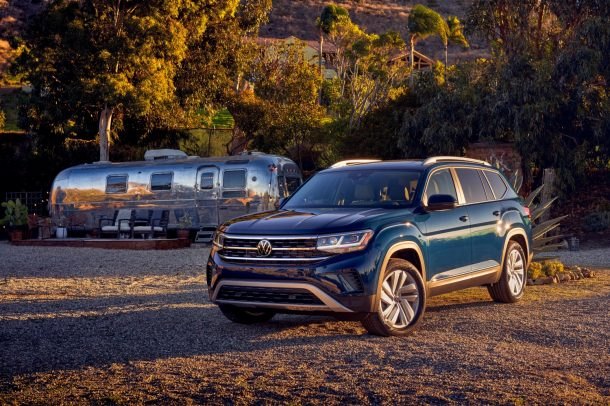


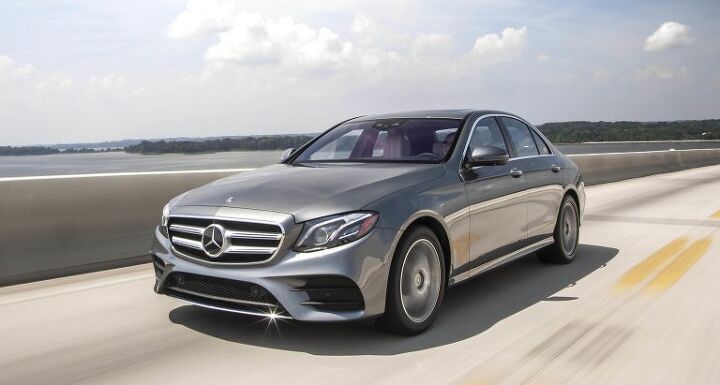












Recent Comments